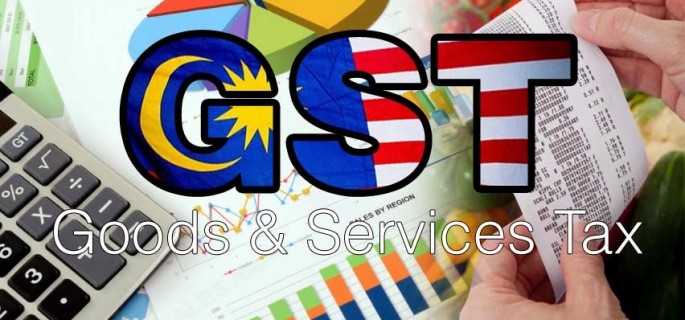Why Singapore GST Registration is Crucial for Your Startup
Why Singapore GST Registration is Crucial for Your Startup
Blog Article
The Ultimate Overview to Simplifying the GST Enrollment Process and Needs for Local Business Owners

Understanding GST Fundamentals
To understand the fundamentals of the Item and Solutions Tax (GST) system, small company proprietors must initially understand its underlying concepts and ramifications. GST is a value-added tax imposed on most products and services for residential usage. It intends to enhance the taxation process by replacing several indirect taxes imposed by the state and central federal governments. Under the GST regimen, businesses are needed to register and gather tax obligation in support of the government, ensuring openness and conformity.
One of the crucial principles of GST is input tax obligation credit history, which allows services to declare credit score for taxes paid on their acquisitions. Recognizing these basic concepts is crucial for small company proprietors to navigate the intricacies of the GST system and ensure conformity with the regulation.
Qualification Criteria for Registration
Having actually established a fundamental understanding of GST principles, local business proprietors need to currently fulfill specific eligibility criteria to wage the registration process. In India, entities participated in the supply of items or services with an annual aggregate turn over going beyond Rs. 40 lakhs (Rs. 10 lakhs for unique category states) are needed to sign up for GST. Furthermore, certain businesses such as those associated with inter-state supply of products, casual taxable persons, and those needed to pay tax under the reverse charge device have to sign up for GST irrespective of their turnover. Furthermore, services that were registered under the previous tax regime (BARREL, service tax obligation, and so on) are additionally mandated to register under GST. Agricultural services that just supply produce out of key manufacturing are exempt from GST enrollment. It is important for entrepreneur to carefully examine their qualification based upon these standards to ensure compliance with the law and stay clear of any penalties for non-compliance.
Files Required for GST Registration
.jpg)
Simplified Enrollment Refine Steps
Adhering to the collection and verification of the requisite papers, the registration process for GST can be browsed via a collection of simplified steps made to facilitate reliable conformity for small company proprietors. The very first step includes seeing the GST portal and selecting the 'New Registration' option. Subsequently, the applicant has to fill in Part A of the GST REG-01 kind with details such as frying pan, mobile number, and e-mail address to acquire an OTP for verification. Once the OTP is obtained and gone into, a Short-term Reference Number (TRN) is generated for further process. The following step needs completing Part B of the type with necessary organization information, publishing sustaining documents, and completing the confirmation process using DSC or EVC. Lastly, upon successful verification, an Application Recommendation Number (ARN) is provided, showing the conclusion of the GST enrollment procedure. By adhering to these streamlined steps, local business proprietors can successfully register for GST and ensure conformity with tax obligation regulations.
Tips for Ensuring Conformity
To preserve regulative adherence and operational stability, persistent oversight and positive actions are critical in ensuring compliance with GST demands for local business proprietors. Local business owners need to remain updated with GST guidelines, navigate to this site filing deadlines, and any try this web-site adjustments in tax rates to avoid fines and preserve a great standing with tax obligation authorities. One important suggestion for conformity is to keep in-depth and precise records of all purchases, consisting of receipts, expenses, and invoices associated with GST. Regularly integrating economic records with GST returns can help in identifying and correcting any discrepancies without delay. In addition, conducting routine interior audits or looking for specialist help can make certain that business is following all GST rules appropriately. It is additionally essential for small company proprietors to purchase GST-compliant audit software application that can simplify the tax obligation filing process and minimize mistakes. Last but not least, participating in GST understanding workshops or training programs can boost understanding and compliance with GST policies, ultimately profiting business in the future.
Conclusion
Finally, local business proprietors need to understand the essentials of GST, satisfy the qualification requirements, collect required papers, and adhere to the simplified registration procedure actions to make certain compliance. By streamlining the GST registration procedure and requirements, small company owners can avoid charges and operate their businesses efficiently within the legal framework - Singapore GST Registration. It is critical for small company proprietors to remain enlightened and certified with GST policies to maintain an effective business operation
Tiny service owners seeking GST enrollment need to guarantee they collect and send the required files to finish the enrollment procedure effectively. The records required for GST enrollment typically include proof of business registration or consolidation, FRYING PAN (Irreversible Account browse this site Number) card of the business address, entity and identity evidence of the promoters/partners/directors, photos, address proof of the location of business, bank account declarations or canceled cheques, and permission types. Attending GST understanding workshops or training programs can enhance understanding and compliance with GST policies, ultimately benefiting the business in the lengthy run.
By simplifying the GST registration process and requirements, small service proprietors can avoid fines and operate their services efficiently within the lawful structure. It is essential for small service proprietors to stay compliant and educated with GST laws to keep an effective business procedure.
Report this page